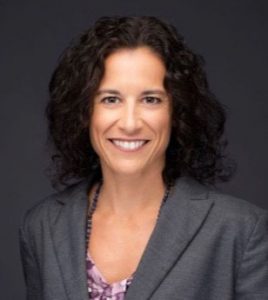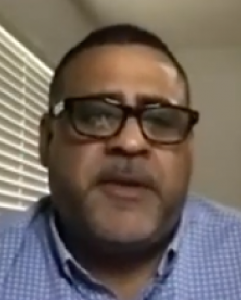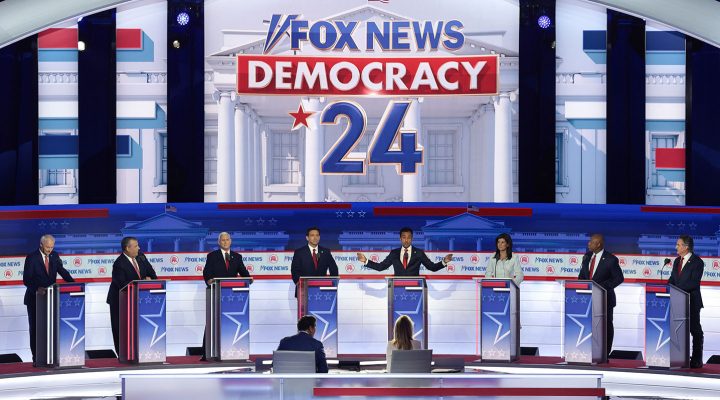The presidential aspirations of Gov. Ron DeSantis have exacerbated the challenges facing Florida’s Death Row inmates and the activists trying to help them, said one of the state’s leading opponents of capital punishment.
“Florida is a very dark place for the death penalty. We are the most extreme death penalty state in the nation now, and we are executing the most and we are making it easier to sentence people to death,” said Maria DeLiberato, executive director of Floridians for Alternatives to the Death Penalty. She spoke during a recent “In the Movement” webinar hosted by Equal Justice USA’s Evangelical Network.
The state has the second largest Death Row population in the nation, with about 300 inmates, and ranks first in the number of death penalty exonerees with 30, she said. Florida is on pace for its sixth execution of the year with a lethal injection scheduled next month.
In April, he signed legislation ending the requirement for unanimous jury verdicts in capital cases.
The misery associated with Florida’s death penalty began to worsen in January when DeSantis signed his first death warrant since 2019, thus ending a four-year period without executions. In April, he signed legislation ending the requirement for unanimous jury verdicts in capital cases. That law was a reaction to the life sentence Nikolas Cruz received last year for the 2018 mass school shooting in Parkland, Fla.

Maria DeLiberato
“Gov. DeSantis made it priority to reduce it to only eight jurors because the Parkland verdict was 9-3. It now takes only an 8-4 jury verdict to condemn in Florida,” DeLiberato said.
Alabama — where 10-2 verdicts can condemn — is the only other state that does not require unanimous jury verdicts for the death penalty, while Indiana and Missouri permit judges to unilaterally impose death sentences when juries are divided.
Next for DeSantis was the official launch of his presidential campaign in May.
“All of this has coincided with this perfect storm of Gov. DeSantis wanting to run for president on this law-and-order style platform that he felt would be sufficient to get him the Republican nomination. And unfortunately, what we’ve seen since then is that he has not stopped” the pace of executions, DeLiberato said.
Donald Dillbeck, Louis Gaskin, Darryl Barwick and Duane Owen have been executed by Florida since February. “He (DeSantis) said there would be an execution about every six weeks. We are approaching our sixth execution on Oct. 3 with Mr. Michael Zack.”
The pace of executions puts the state at the forefront of capital punishment. According to the Death Penalty Information Center, 17 prisoners have been executed in the U.S. in 2023, with five each in Florida and Texas, four in Missouri, two in Oklahoma and one in Alabama.
“There are only about five states, Florida among them, that are currently and actively doing executions.”
These trends put the United States and Florida in a bad light internationally, said Sam Heath of EJUSA. “The U.S. has about 5% of the world’s population but about 20% of the world’s prisoners at just under 2 million. But if we add in those that are on probation or parole, it’s an additional 3.7 million people. About 70% of the nations across the world have repealed the death penalty, and in the United States we have 23 states, plus D.C., that have repealed the death penalty. So, 27 states are remaining that practice the death penalty, but there are only about five states, Florida among them, that are currently and actively doing executions.”
Heath acknowledged death penalty abolitionists have an especially steep hill to climb in the Sunshine State: “Florida’s gone through a lot recently. There was ‘hurricane Ron DeSantis’ — your governor is running for president — and there was the tragedy in Jacksonville” where a white supremacist gunman killed three Black shoppers at a Dollar General store on Aug. 26.
But capital punishment in Florida had plenty of flaws before the governor began his run for the White House, including the system for selecting jurors in capital cases chief among them, DeLiberato said. “It’s super broken. A jury that is selected is oftentimes a little more predisposed to convicting because they tend to believe in the death penalty. If you’re against the death penalty, you cannot be a juror.”

Agustine Quiles
Death penalty abolitionists must seek to educate Floridians about other inherent flaws with the death penalty system, said Agustin Quiles, founder of Mission Talk, a Latino evangelical social justice group.
“Something that resonates with them (Latinos) is when you explain to them that the majority of these people on Death Row are poor, that they don’t have the right representation, and that they don’t have the financial means to really fight a good defense,” he said. “It resonates with them because they they have a heart for the poor and they have a heart for the homeless. And a lot of these inmates that are on Death Row, a lot of them come from that background.”
Even DeSantis is doing his part to educate Floridians about the evils of capital punishment “with all these executions,” DeLiberato said. “We are in the trenches here fighting, and this is the time to make a difference. And I believe we’re doing so. We’re getting a ton of support in opposition of these executions. I’m grateful for the awareness that Florida is the most extreme death penalty state in the nation right now.”
Related articles:
Ron DeSantis: The anti-woke prophet of evangelicals | Analysis by Rodney Kennedy
Former RNC head calls new DeSantis ad ‘ass-backwards blasphemy’
Opposition to death penalty gaining steam through broad coalition


